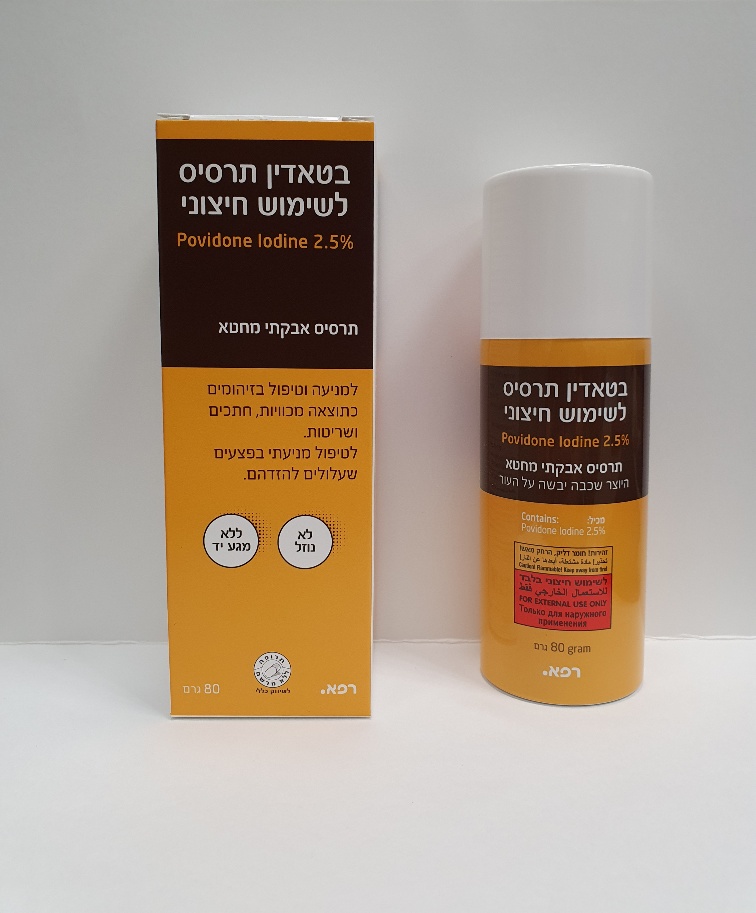Quest for the right Drug

בטאדין תרסיס לשימוש חיצוני BETADINE TOPICAL SPRAY (POVIDONE-IODINE)
תרופה במרשם
תרופה בסל
נרקוטיקה
ציטוטוקסיקה
צורת מתן:
עורי : DERMAL
צורת מינון:
אין פרטים : CUTANEOUS SPRAY, POWDER
עלון לרופא
מינוניםPosology התוויות
Indications תופעות לוואי
Adverse reactions התוויות נגד
Contraindications אינטראקציות
Interactions מינון יתר
Overdose הריון/הנקה
Pregnancy & Lactation אוכלוסיות מיוחדות
Special populations תכונות פרמקולוגיות
Pharmacological properties מידע רוקחי
Pharmaceutical particulars אזהרת שימוש
Special Warning עלון לרופא
Physicians Leaflet
Adverse reactions : תופעות לוואי
4.8. Undesirable Effects Evaluation of adverse effects has been based on the following frequency categories: Very common (≥1/10) Common (≥1/100, <1/10) Uncommon (≥1/1,000, <1/100) Rare (≥1/10,000, <1/1,000) Very rare (≤1/10,000) Not known (cannot be estimated from the available data) Within each frequency grouping adverse effects are listed in the sequence of decreasing severity. Immune System Disorders Rare: hypersensitivity Very rare: anaphylactic reactions frequently accompanied by blood pressure drop, dizziness, nausea and possibly dyspnea. Endocrine Disorders Very rare: iodine-induced hyperthyroidism in predisposed persons (sometimes with symptoms of tachycardia or restlessness; see sections 4.3 and 4.9)1) Not known: hypothyroidism2) Metabolism and Nutrition Disorders Not known: electrolyte imbalance3), metabolic acidosis3) Skin and Subcutaneous Tissue disorders Rare: contact dermatitis (with symptoms like erythema, blistering and itching) Very rare: angioedema Renal and Urinary Disorders Not known: acute renal failure3), abnormal osmolarity of blood3) 1) In patients with a history of thyroid dysfunction upon absorption of larger volumes of iodine e.g., in the course of large-scale use of povidone-iodine in the treatment of wounds and burns for a prolonged period 2) Hypothyroidism upon prolonged or excessive use of povidone-iodine 3) May occur upon absorption of larger volumes of povidone-iodine (e.g., treatment of burns). Reporting of suspected adverse reactions Reporting suspected adverse reactions after authorisation of the medicinal product is important. It allows continued monitoring of the benefit/risk balance of the medicinal product. Any suspected adverse events should be reported to the Ministry of Health according to the National Regulation by using an online form. https://sideeffects.health.gov.il/

שימוש לפי פנקס קופ''ח כללית 1994
לא צוין
תאריך הכללה מקורי בסל
לא צוין
הגבלות
לא צוין
מידע נוסף
